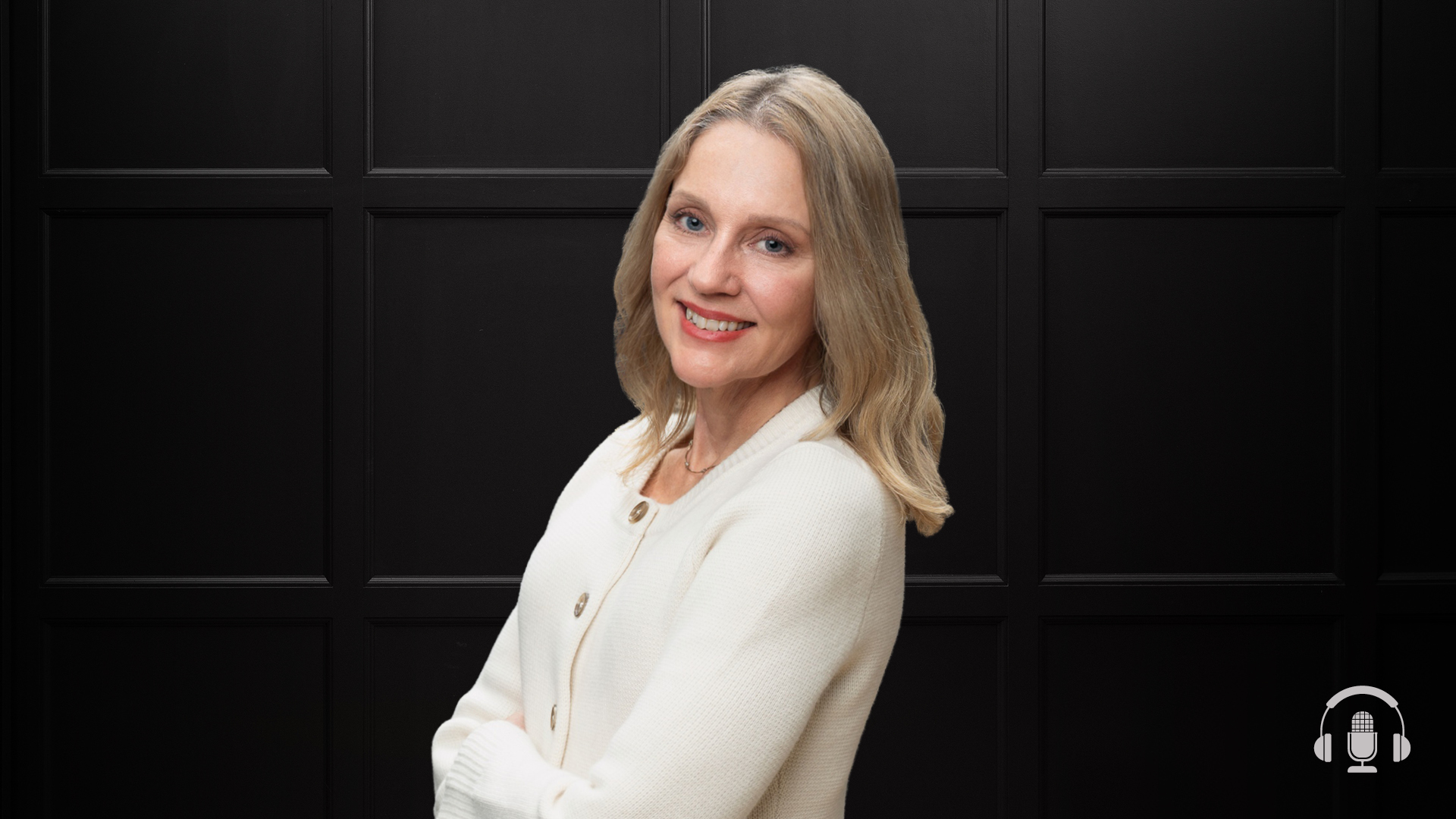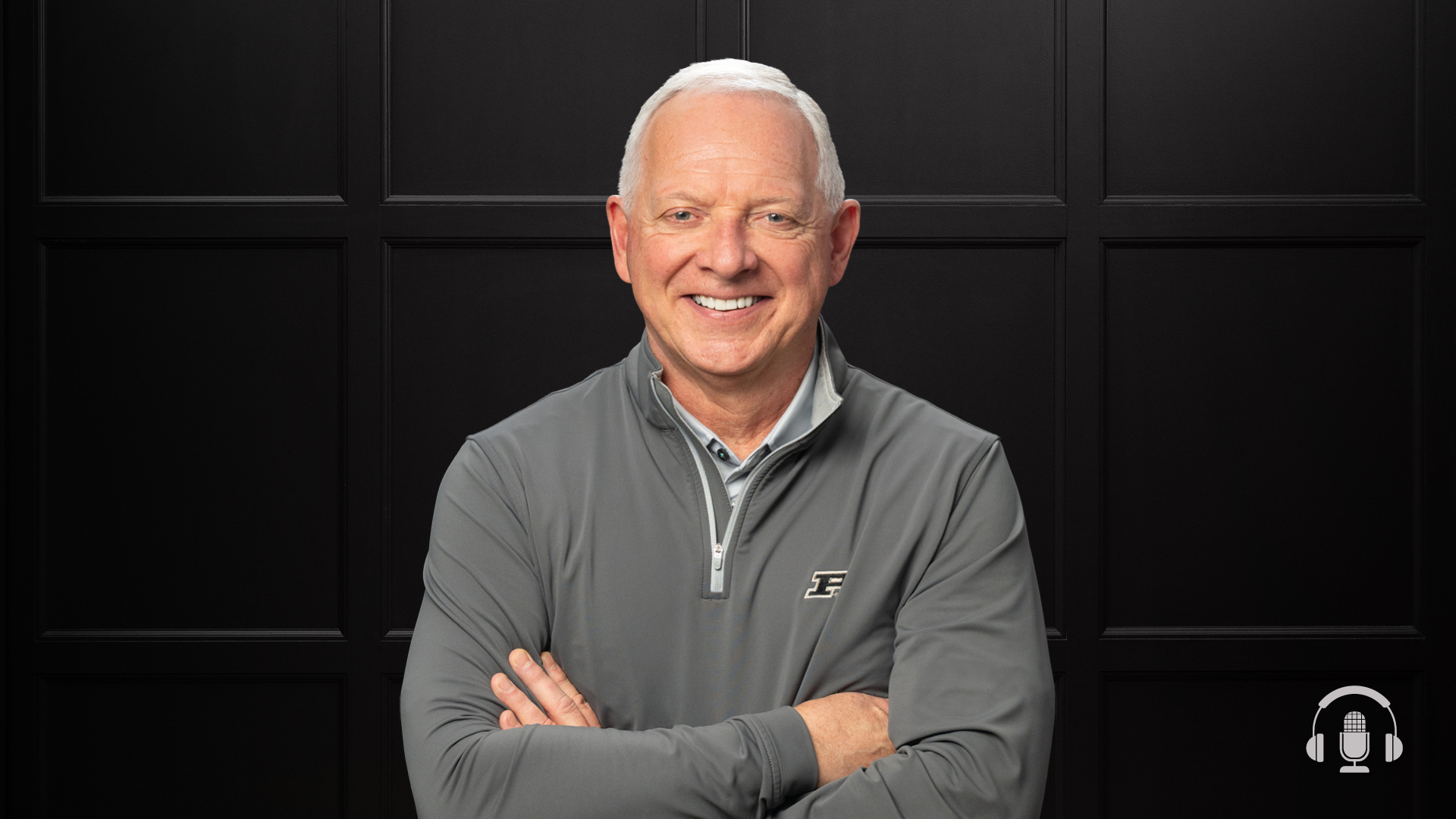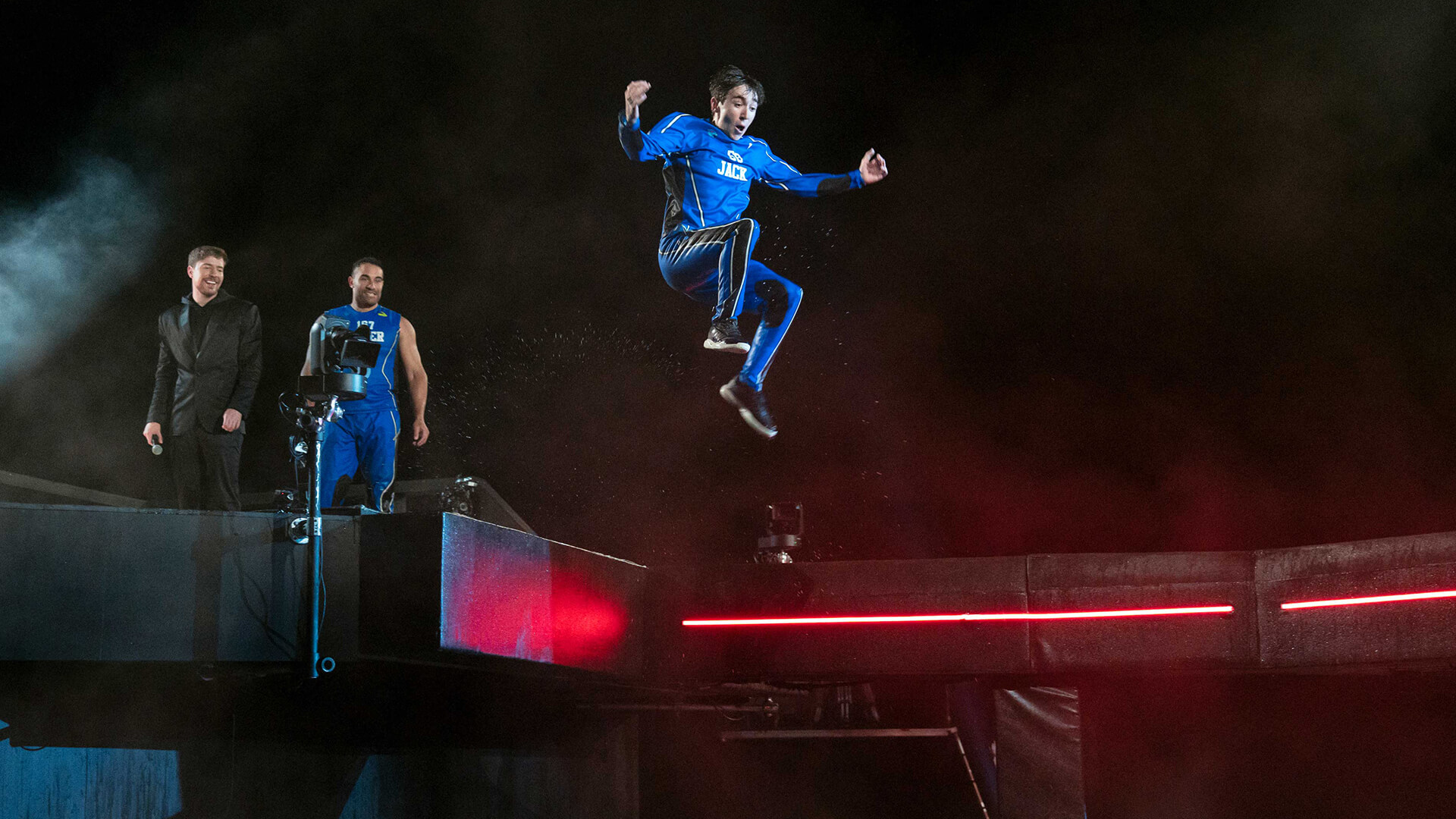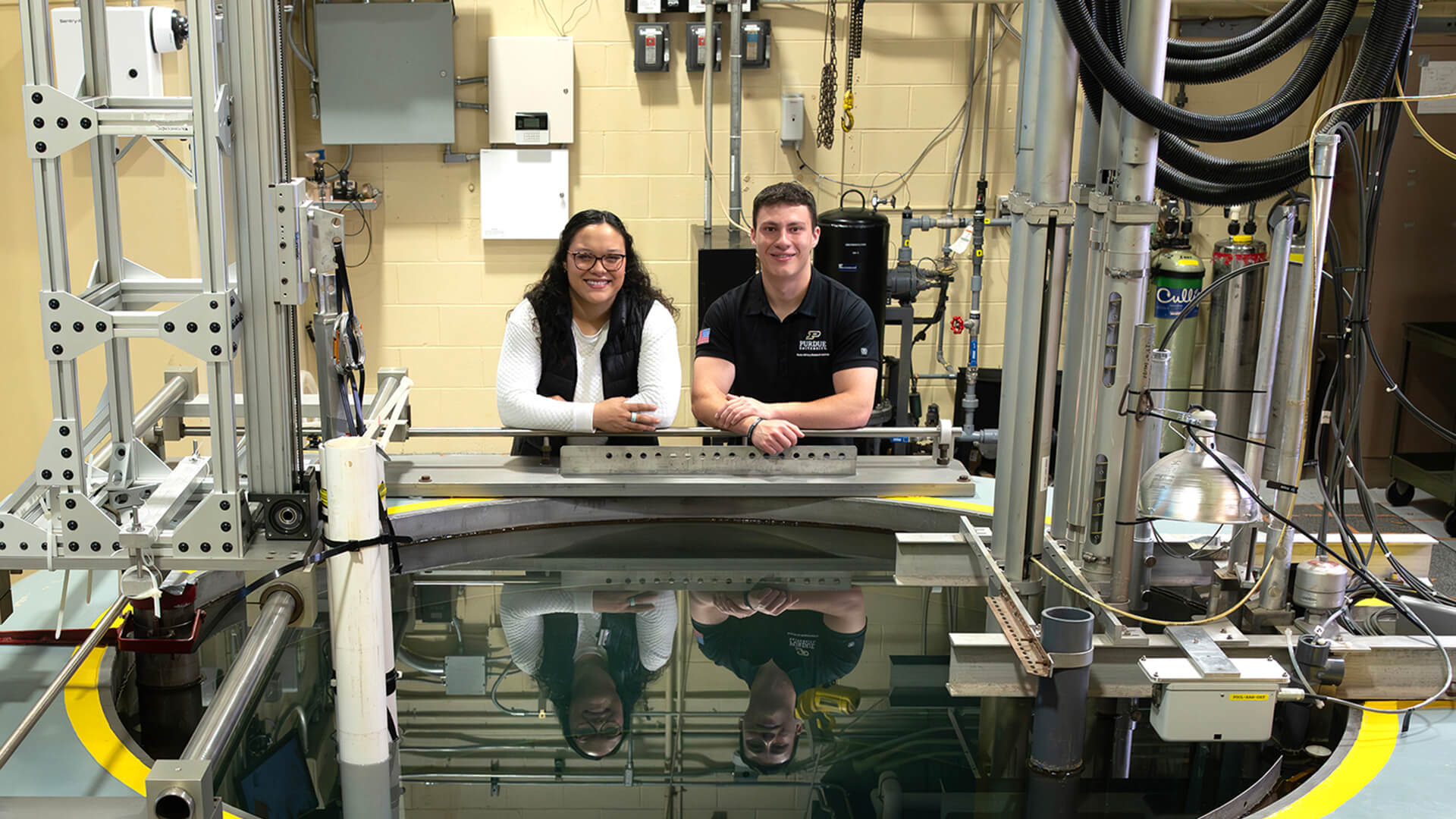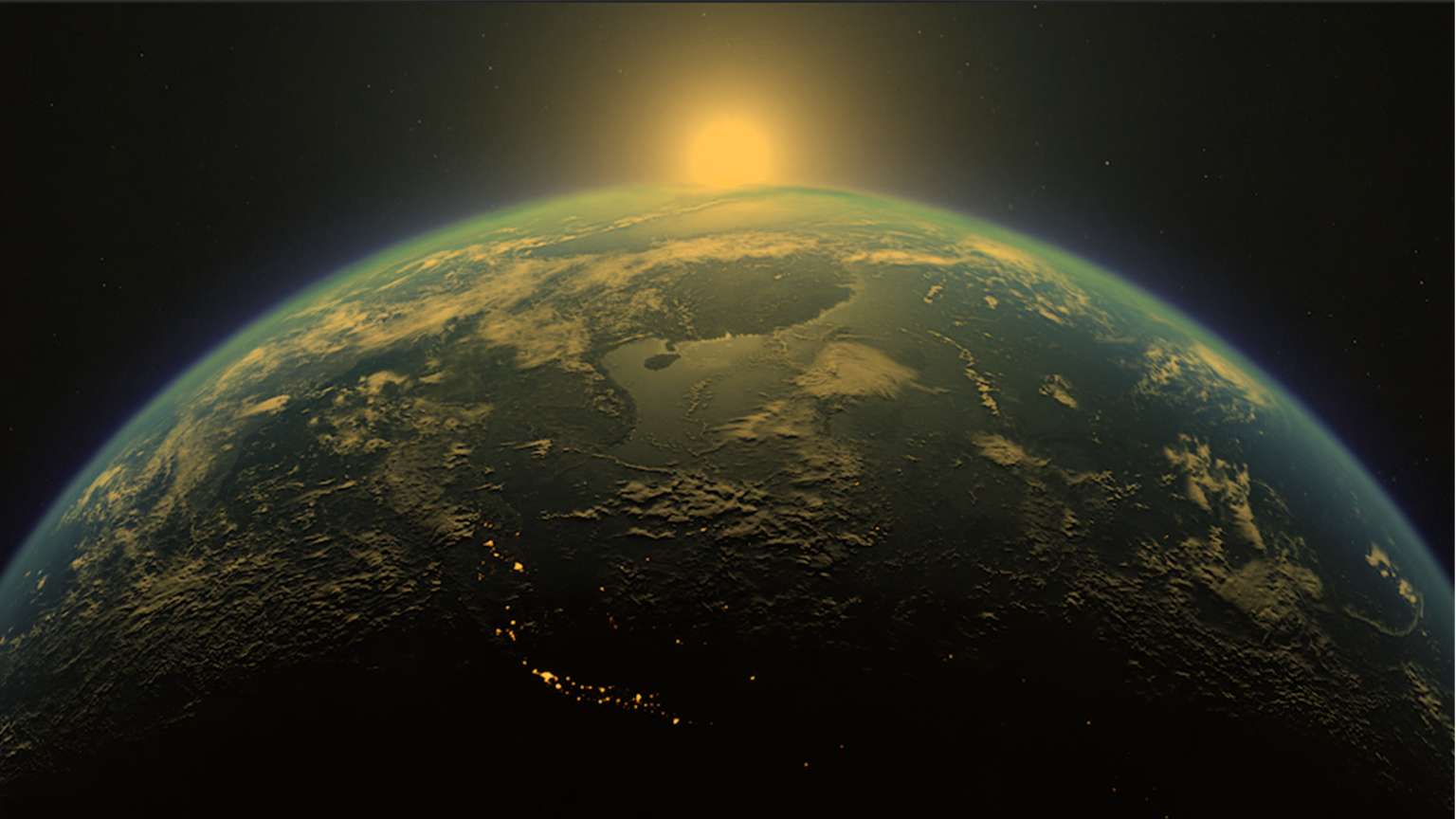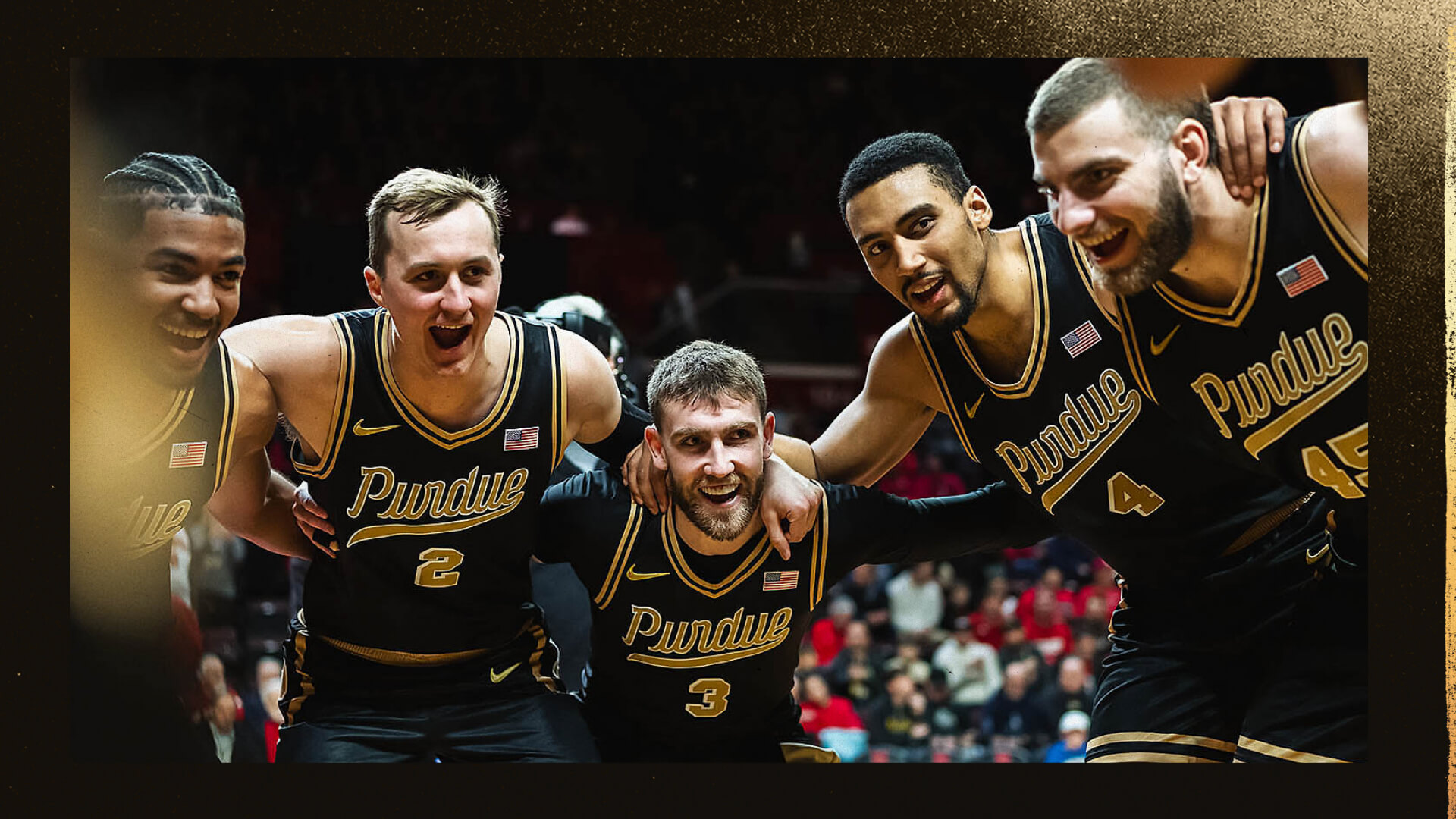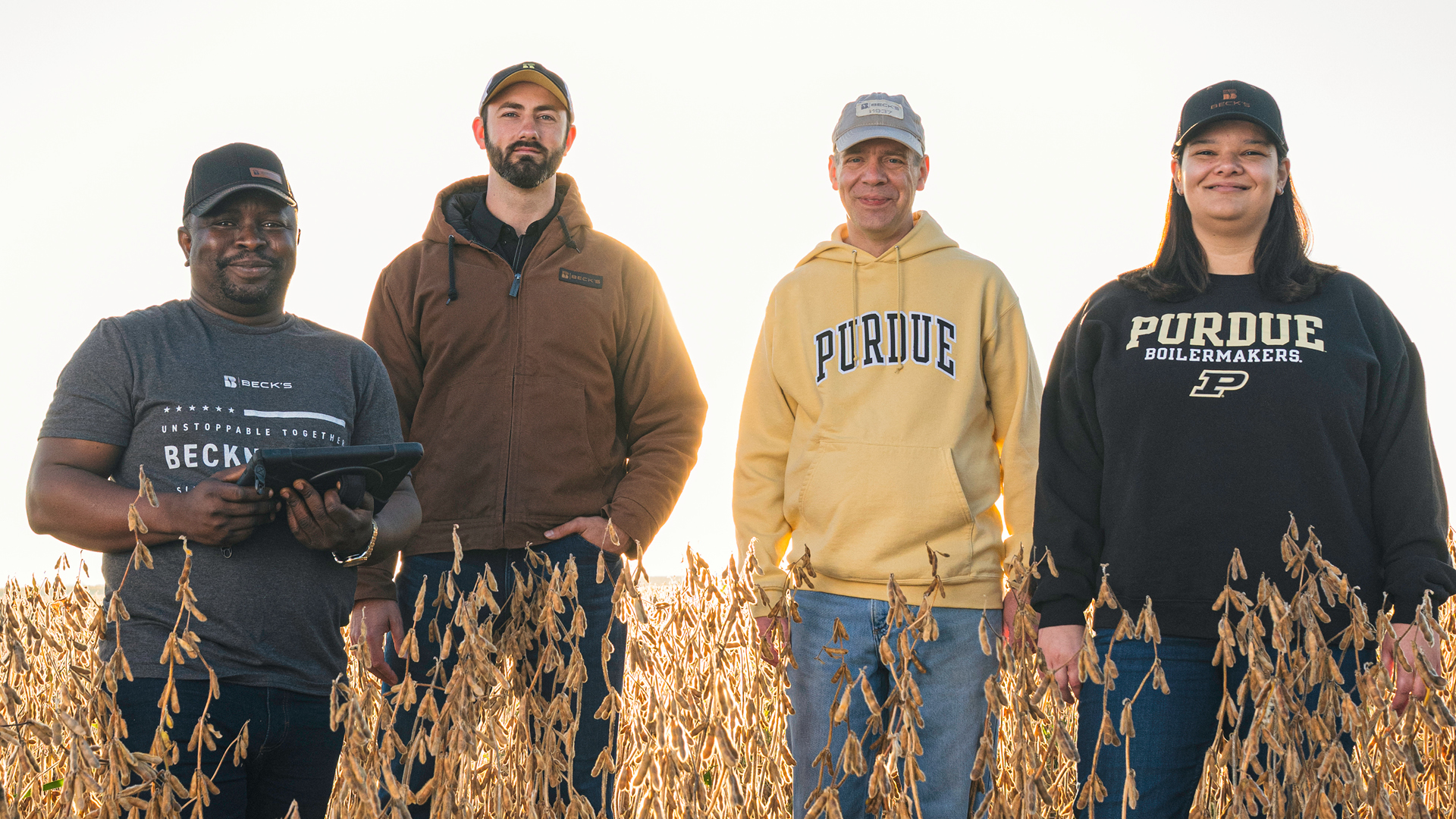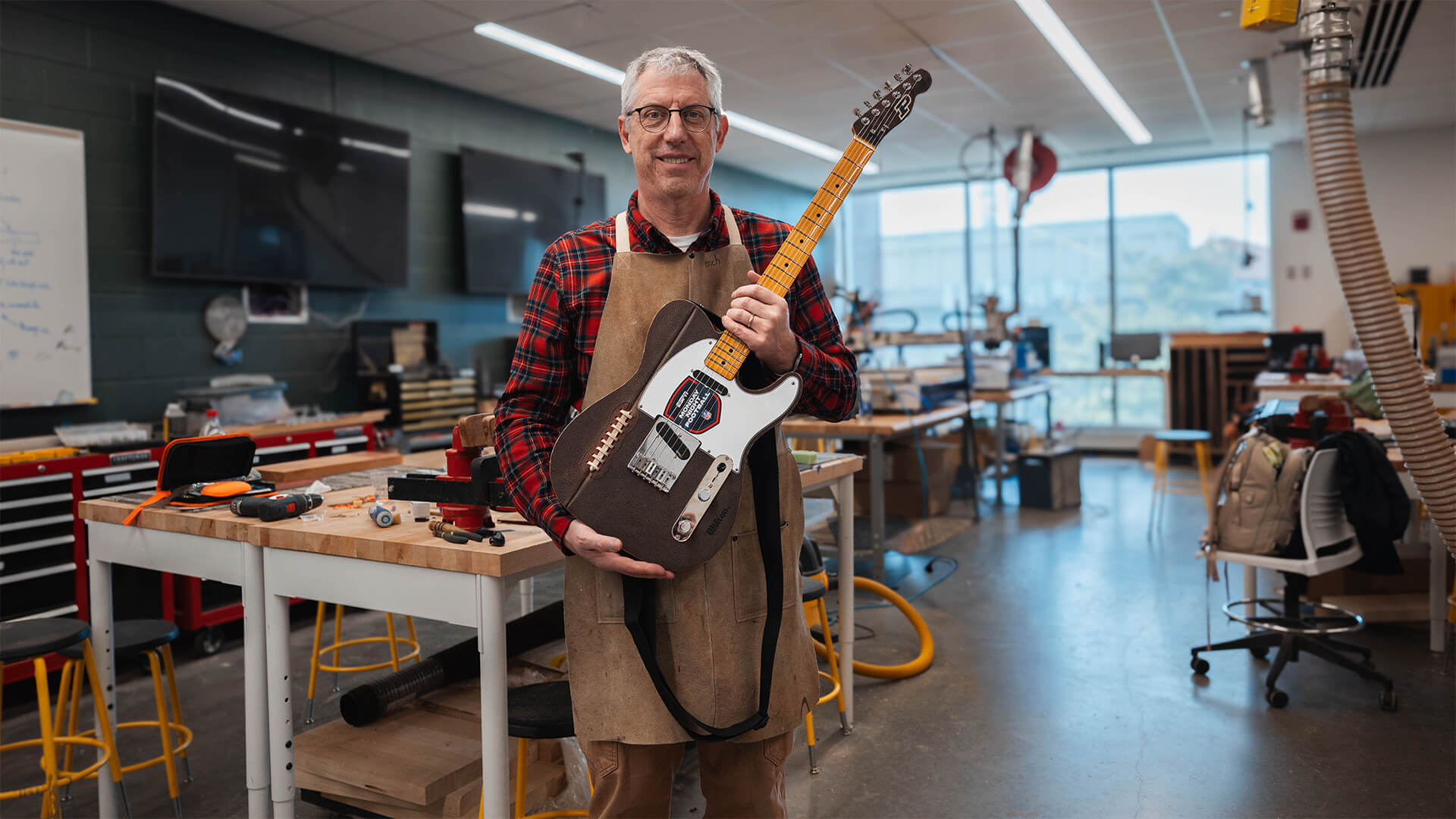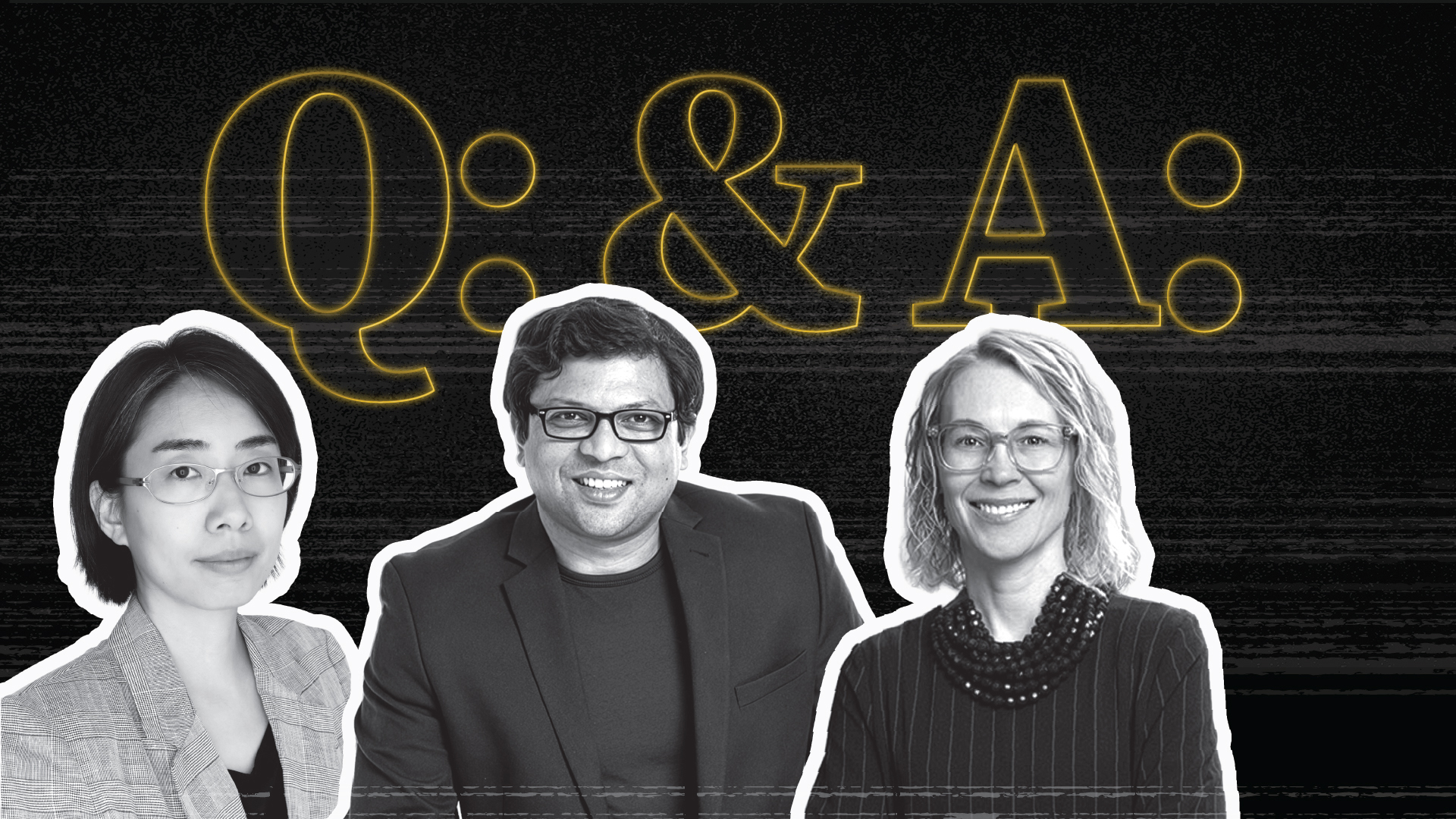Purdue women’s space program establishes a confident community
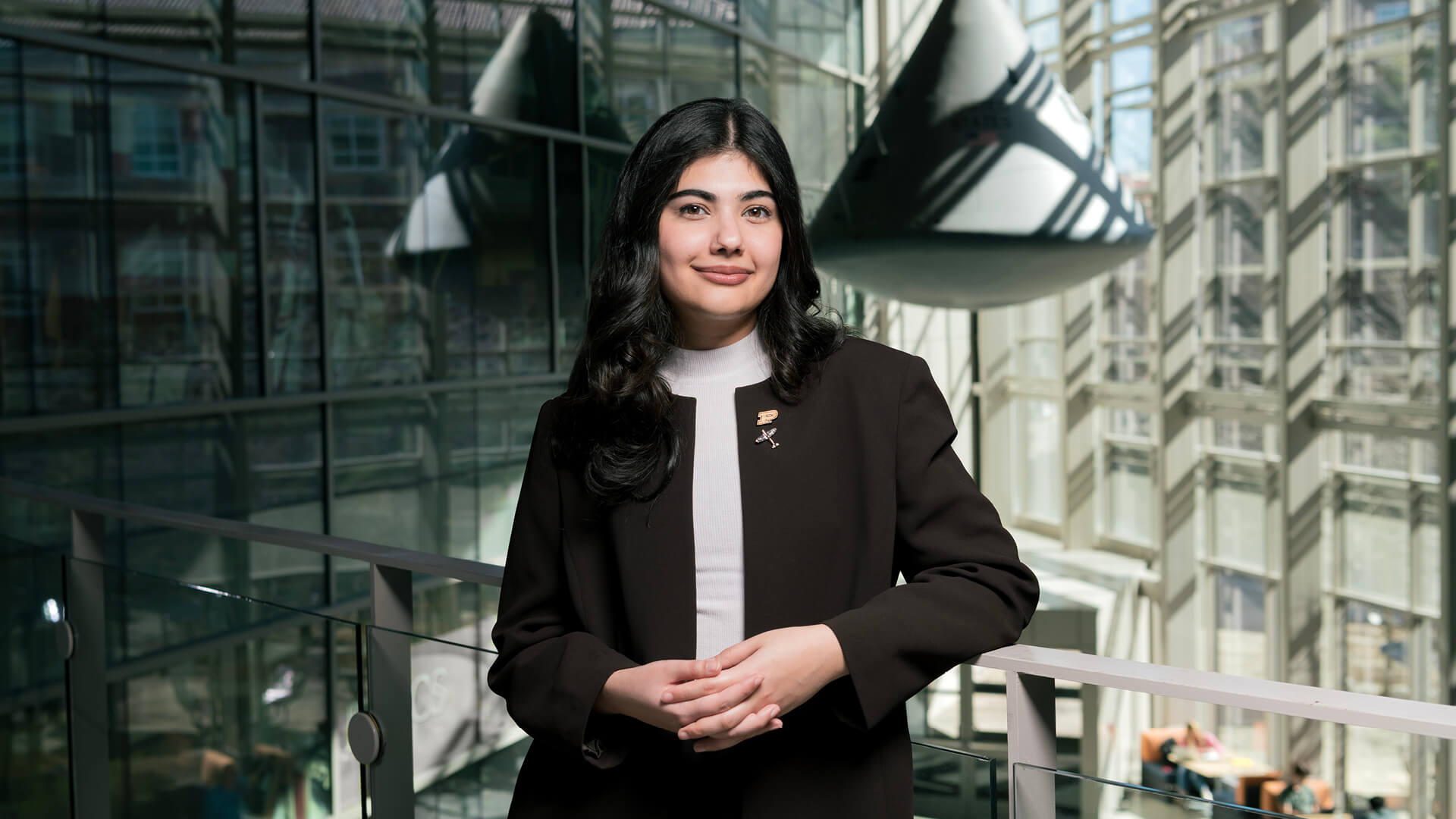
Roha Gul, a graduate student in autonomy and control with a focus in astrodynamics and space applications, joined Leading Women Toward Space Careers to learn and network.
Students form ties to peers, industry leaders and astronauts in the only college organization of its kind
It’s a career path so extraordinary that finding a starting point can seem impossible.
Most dream jobs have maps: earn this degree, get that internship, meet those professionals. When a certain sequence is followed, it results in landing a role.
But what if someone’s shooting for the stars?
“This is what I want to do for the rest of my life,” says Roha Gul, a graduate student in autonomy and control with a focus in astrodynamics and space applications. “I want to be a part of space exploration.”
Gul is achieving her dream after joining Purdue’s Leading Women Toward Space Careers program. Founded in 2022 in the John Martinson Honors College in partnership with the Astronaut Scholarship Foundation, the program connects Boilermakers to astronauts and researchers at the forefront of innovation, including specialists from NASA and commercial spaceflight companies.
Leading Women Toward Space Careers is the only college program of its kind. Through mentorship meetings, workshops and space center visits, students learn how to progress in their career paths. They’re also gaining the greatest resource: a community that listens to them, uplifts them and lets them know they’re never alone.
There is a level of devotion that you can’t find anywhere else other than Purdue.
Madelyn Whitaker
BS biological engineering ’24
Finding a network
Twenty-seven Purdue alumni have gone into orbit, designating the university as the Cradle of Astronauts. But Purdue has produced more than commanders, pilots and mission specialists. It also has educated talent across the space industry, including researchers, data scientists and engineers who improve everything from software to spacesuit design.
“There is a level of devotion that you can’t find anywhere else other than Purdue,” says Madelyn Whitaker, a senior majoring in biological engineering with minors in biotechnology and data driven agriculture. “People are dedicated and want to give back. They’re proud to be a Boilermaker and see students who work to make our network even better.”
Whitaker’s mentors are both affiliated with NASA. From them, she’s learned more about what it takes to get hired — and how to navigate new environments. She’s grateful that mentors have given the students solid advice on how to recognize where they’ll thrive and what to do in a field that’s not predominantly female.
“It can be difficult when you don’t feel like you’re represented in the workplace,” Whitaker says. “We’ve had a lot of conversations about how to effectively communicate your needs and advocate for other women. Mentors found ways to do that in their careers, and it’s going to support the steps we take.”
In the future, Whitaker will contribute to astrobotany and space biology. She strives to develop sustainable biological solutions for our planet and beyond. Already, she’s been able to dive into impressive research, like conducting fieldwork as an analog astronaut at the Mars Desert Research Station as well as growing soybeans in lunar and Martian simulations.
Leading Women Toward Space Careers has instilled a sense of true belonging in what comes next after earning an undergraduate degree, replacing Whitaker’s previous anxiety about breaking into the space industry.
“It’s been life-changing to be in proximity to these amazing women, because, at the end of the day, you realize that they are humans,” she says. “Through mentorship circles, I’ve realized that everyone’s just a person. They’re approachable; they have a favorite food; they have hobbies. It makes it so much easier to connect. They’re more than their work, and it’s been important for me to realize that.”
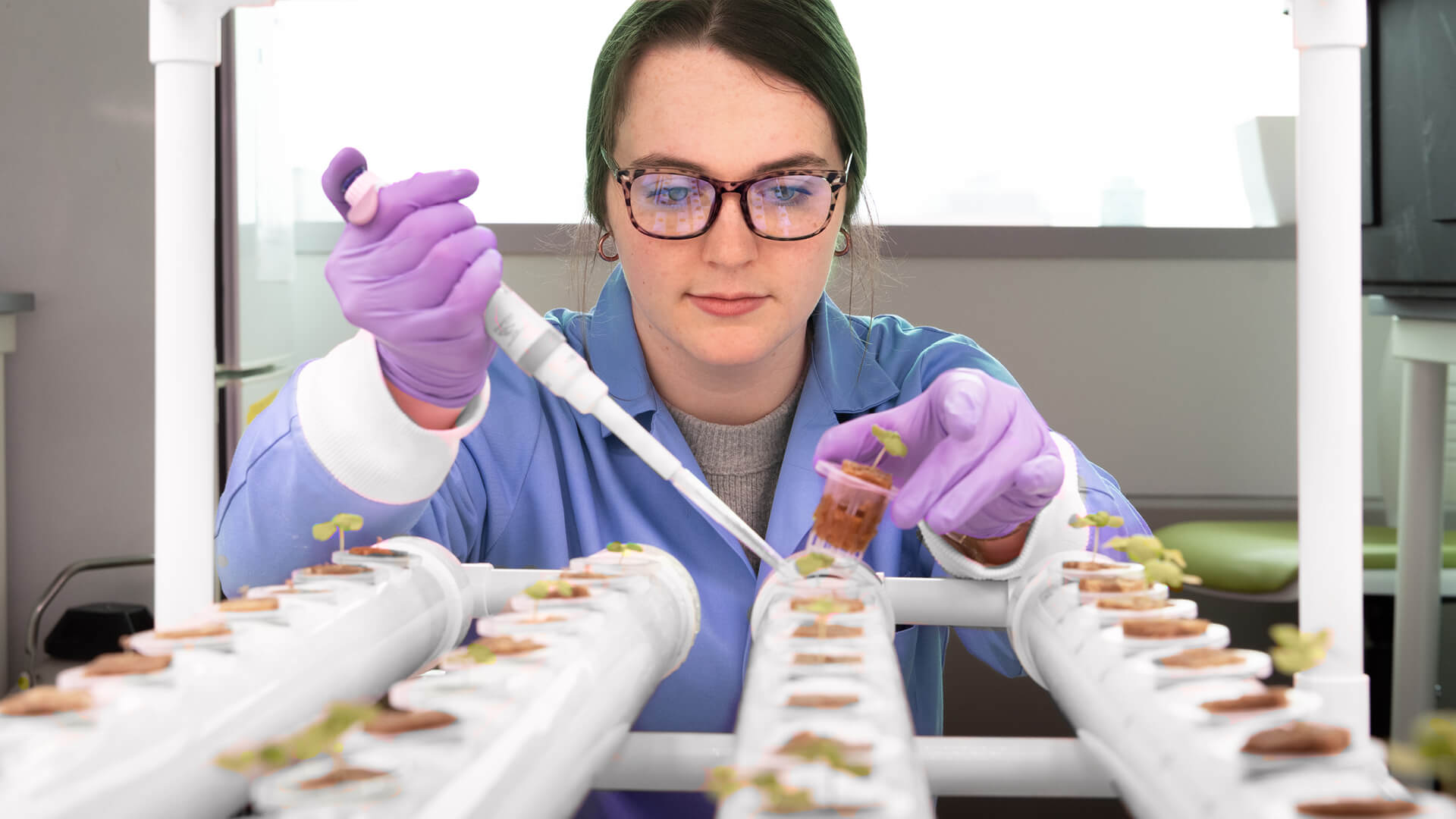
Strengthening skills
Mentorship circles have united mentors and mentees, creating relationships that emphasize feeling seen and heard — and with that, paying attention and listening. The conversations create personal and professional benefits.
“One of the biggest things my circle has given me is a safe space,” Gul says. “My mentors have become friends. I feel truly accepted for who I am and what I want, which is very empowering.”
Every Leading Women Toward Space Careers member brings different experiences to the table. Students come from all over the world. Most have different aspirations and areas of interest. Yet, through it all, there’s a common thread. Gul enjoys getting to know younger mentees and being able to relate to so many of their stories.
“As a grad student, hearing the other women’s stories and what their points of view are is inspiring,” she says. “Even though they’re younger, I’m always learning something from them.”
Before she came to Purdue for her master’s degree, Gul studied aerospace engineering in Pakistan. She’s interested in using optimal control methods for guidance for space vehicles. Right now, she’s researching how artificial intelligence and machine learning techniques can help with guidance, control and navigation.
Friendships in the program have helped her acclimate to the U.S. and strategize her postgraduation plans. She felt welcomed with open arms when she joined, and now she can say that she’ll always have people who have her back in the next stage.
“It’s been amazing,” she says. “You build solidarity as you go through the same things. When you talk to people here, you find that sense of comfort. No matter where I go, I’ll have that.”
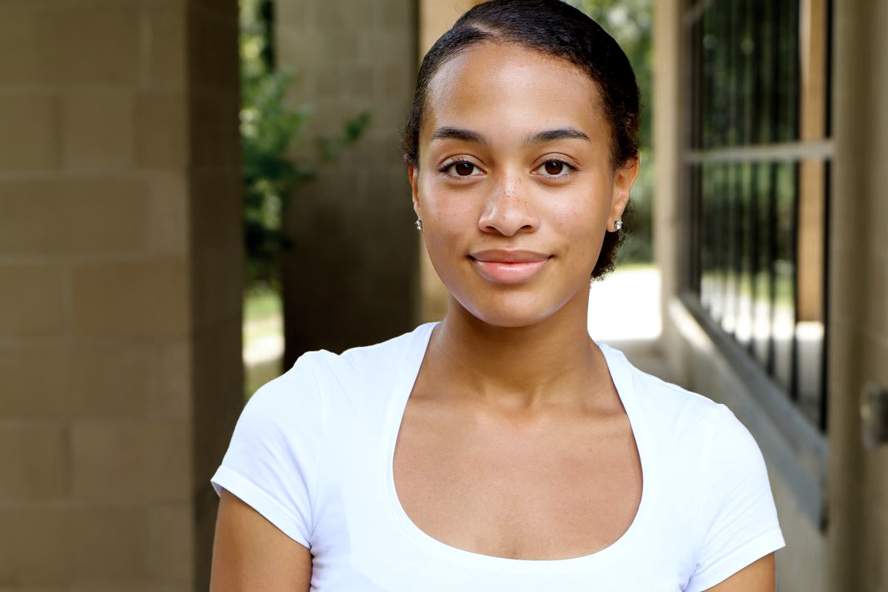
People in the program are so interesting and always pushing the envelope of what’s possible.
Arianna Cobb Morgan State University student
Preparing for the future
Distance doesn’t stall the program’s purpose. Wherever life leads, the ties hold strong. Those connections aren’t limited to Indiana. In 2023, Leading Women Toward Space Careers expanded to Morgan State University, a historically Black university in Baltimore. Purdue has collaborated with Morgan State on a number of strategic initiatives, including a 3+2 dual-degree partnership.
“When I met everyone, we instantly clicked,” says Arianna Cobb, a Morgan State sophomore studying industrial engineering. “I want to be lifelong friends with these women. Even though we’re not on the same campus, I always feel included.”
Every month, mentorship circles meet virtually for conversations about current projects, networking opportunities and anything else that comes to mind. Members also communicate in a group chat. Throughout the year, they meet for events and workshops, bonding on trips to conferences and NASA centers.
Cobb credits the program as a priceless source of information one wouldn’t hear otherwise. “People in the program are so interesting and always pushing the envelope of what’s possible,” she says. “Everyone’s contributing to some amazing research, getting outstanding internships, meeting different people.”
Finding out about others’ work has been encouraging for Cobb, whose passion for astrophysics traces back to a very young age. Her grandfather was a physics teacher, and her father passed on the love for science. “My dad used to put on ‘Through the Wormhole,’ Morgan Freeman’s science show, and I was obsessed,” she says with a laugh. “I wanted to understand coding languages and would show up to fifth grade class with packets of binary code I wrote.”
Now she’s studying to advance space exploration alongside other women who have their own stories of interest-sparking shows, memorable science classes and fascinations with the solar system.
Together, they’re changing the future of the industry.
“Every mentor, every meeting, every interaction solidifies my passion for this,” Cobb says. “The program has completely connected us, even if we’re miles apart.”
